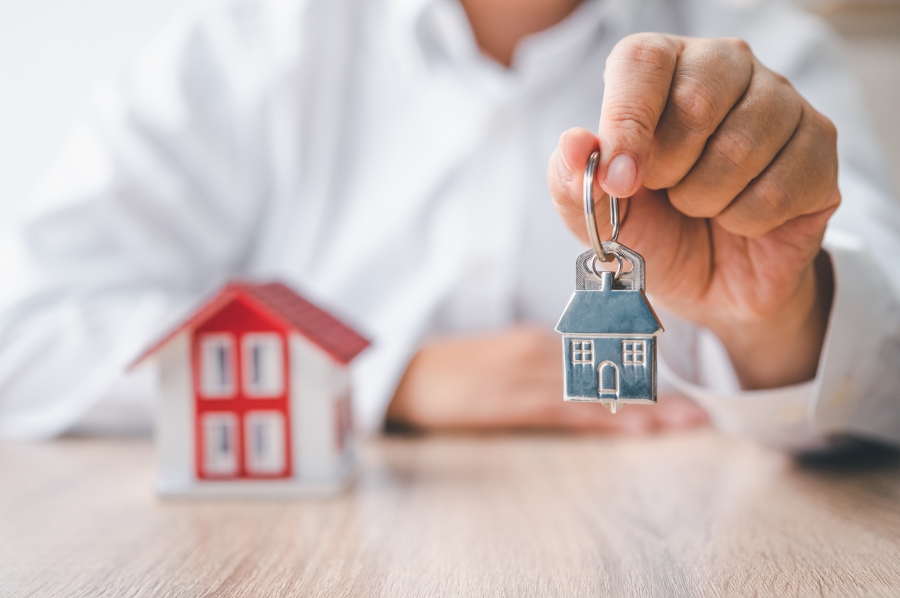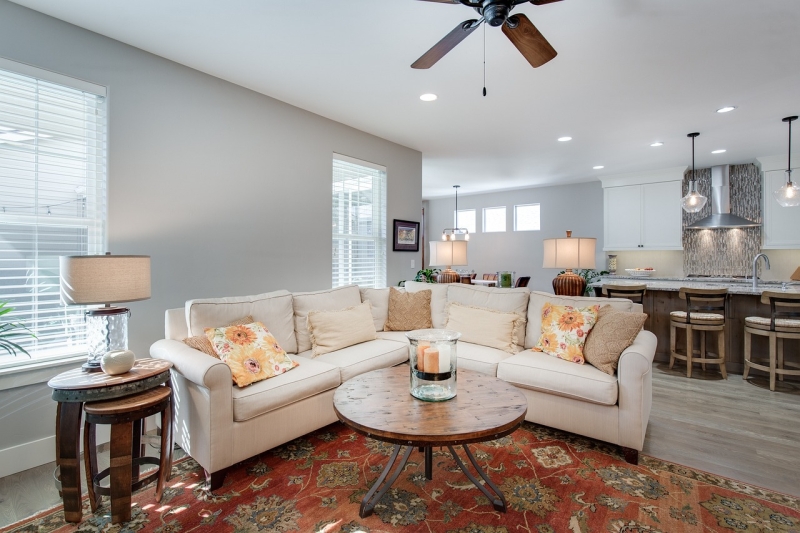Buying a home is a significant decision, and careful consideration of various factors is essential to ensure a successful and satisfying purchase.
Whether you’re a first-time buyer or experienced in the real estate market, understanding the essential factors involved in the home buying process is crucial.

This comprehensive guide aims to provide valuable insights and guidance to individuals ready for homeownership in the Philippines. From financial preparation and selecting the right location to legal considerations and professional guidance, we’ll cover all the necessary aspects to help you make an informed decision.
So, let’s delve into the world of home buying and embark on the exciting journey of finding your dream home in the Philippines.
Budget and Financial Considerations
When it comes to buying a home, understanding your budget and financial considerations is paramount. By carefully planning your finances for the house purchase, you can ensure a smooth and stress-free process.
Consider the following factors:
Determining your budget:
- Assess your current financial situation, including income, savings, and existing debts.
- Determine how much you can comfortably afford for a down payment and monthly mortgage payments.
- Use online calculators or consult with financial advisors to get a clear picture of your budget.
Mortgage options and affordability:
- Research different mortgage options available in the Philippines.
- Compare interest rates, loan terms, and down payment requirements.
- Consider getting pre-approved for a mortgage to know your maximum borrowing capacity.
Additional costs:
- Be prepared for additional expenses beyond the purchase price.
- Factor in property taxes, insurance premiums, and maintenance costs.
- Include expenses for home inspections, appraisals, and legal fees.
By carefully considering your budget and financial capabilities, you can make informed decisions while searching for your ideal home. Remember to strike a balance between your desired property and your financial limitations to ensure a sustainable and comfortable homeownership experience.
Location and Accessibility

Choosing the right location for your new home is a crucial decision that can greatly impact your lifestyle and convenience. Consider the following factors when assessing the location and accessibility of potential properties:
Selecting the right neighborhood:
- Research different neighborhoods in the Philippines that align with your preferences and lifestyle.
- Consider factors such as safety, amenities, proximity to schools, healthcare facilities, and shopping centers.
- Evaluate the neighborhood’s reputation and community vibe through online research and local recommendations.
Proximity to amenities:
- Assess the convenience of accessing essential amenities from the prospective property.
- Look for nearby schools, hospitals, grocery stores, parks, and recreational facilities.
- Consider transportation options and commuting distances to your workplace or other frequent destinations.
Transportation and commuting options:
- Evaluate the availability and reliability of public transportation in the area.
- Assess the proximity to major roads, highways, and public transportation hubs.
- Consider the commuting time and transportation costs associated with your daily routines.
Choosing a location that meets your needs and enhances your quality of life is essential when buying a home. By carefully considering the neighborhood, proximity to amenities, and transportation options, you can ensure a convenient and comfortable living experience in the Philippines.
Property Features and Size
When purchasing a home, considering the property features and size is vital to finding a space that aligns with your needs and preferences. Let’s explore the various aspects when evaluating potential properties:
Type of property:
Are you envisioning a cozy house nestled in a quiet neighborhood, a convenient apartment in the heart of the city, or a modern condominium with luxurious amenities? Each option offers distinct advantages and considerations that shape your living experience.
Size and layout requirements:
Picture yourself in your dream home. How many bedrooms do you need to accommodate your family or guests?
Do you desire an open-concept layout that fosters a seamless flow between rooms? Consider your lifestyle and future plans when evaluating the size and layout of a property.
Amenities and facilities:
Imagine the convenience and enjoyment of having access to amenities within your residential complex. Whether it’s a designated parking space, 24/7 security, a well-equipped gym, or a serene swimming pool, these additional features can greatly enhance your day-to-day living experience.
Outdoor space and maintenance:
If you have a green thumb or enjoy outdoor activities, consider properties with garden spaces, balconies, or terraces. However, remember to assess the maintenance requirements associated with these outdoor areas, ensuring they align with your willingness and ability to maintain them.
By varying the content format, we can engage readers and provide information in a more engaging and interactive manner. Exploring property features and size goes beyond mere bullet points, allowing you to visualize and envision your ideal home.
Quality and Condition of the Property

Assessing the quality and condition of a property is crucial to ensure that your investment is worthwhile and that you won’t encounter significant issues in the future. Consider the following factors when evaluating the property’s quality and condition:
Inspecting the Property for Structural Integrity
Before making a purchase, thoroughly examine the property’s foundation, walls, and roof. Look for signs of cracks, water damage, or uneven settling, as these can indicate potential structural issues that may require costly repairs.
Evaluating the Condition of Plumbing, Electrical, and HVAC Systems
A comprehensive inspection of the property’s plumbing, electrical wiring, and HVAC (heating, ventilation, and air conditioning) systems is essential. Ensure that these systems are up to code, well-maintained, and in good working order to avoid unexpected expenses down the line.
Assessing the Quality of Construction Materials Used
Take note of the materials used in the construction of the property. High-quality materials are more durable, resistant to wear and tear, and can contribute to the overall longevity of your home.
Consider factors such as the type of flooring, cabinetry, windows, and doors.
Verifying Any Recent Renovations or Remodeling
Inquire about any recent renovations or remodeling work done on the property. Understand the scope of the changes, the permits obtained, and the contractors involved.
Ensure that the work was carried out professionally and in compliance with regulations.
By carefully evaluating the quality and condition of the property, you can make an informed decision and avoid potential headaches or unexpected expenses in the future. Prioritize properties that demonstrate solid structural integrity, well-maintained systems, and the use of high-quality construction materials.
Legal and Documentation Matters
When buying a home, navigating the legal and documentation aspects is essential to ensure a smooth and secure transaction. Consider the following factors and tasks related to legal and documentation matters:
Checking property titles and ownership:
- Verify the property’s title and ownership documents through proper channels.
- Conduct a thorough review to ensure there are no encumbrances or legal disputes.
- Engage the services of a qualified lawyer or legal professional to assist with the title search and verification process.
Reviewing contracts and agreements:
- Carefully review all contracts and agreements related to the purchase.
- Understand the terms and conditions, including payment schedules, contingencies, and any clauses that may affect your rights and responsibilities.
- Seek legal advice if you have any concerns or questions regarding the contract terms.
Understanding the legal obligations and responsibilities:
- Familiarize yourself with the legal obligations and responsibilities that come with homeownership in the Philippines.
- Be aware of local regulations, building codes, and zoning restrictions that may apply to the property.
- Comply with tax obligations, homeowners’ association rules, and any other legal requirements associated with the property.
Completing necessary documentation:
- Ensure all necessary documentation is completed accurately and submitted on time.
- This may include application forms, proof of identity, proof of funds, and other required paperwork.
- Keep copies of all documentation for your records and future reference.
By giving due attention to the legal and documentation matters, you can protect your interests and ensure a transparent and lawful property purchase. It is advisable to seek professional guidance from lawyers or experts well-versed in real estate transactions to navigate this aspect successfully.
Future Development and Appreciation Potential

Considering the future development and appreciation potential of a property is essential for making a wise investment decision. Explore the following factors to assess the growth prospects and long-term value of the property:
Researching upcoming infrastructure projects:
Stay informed about planned infrastructure projects in the vicinity of the property you’re considering. Look for developments such as new roads, public transportation expansions, or commercial centers that can enhance the accessibility and desirability of the area.
Analyzing market trends and growth potential:
Study the real estate market trends in the Philippines, both at the national and local levels. Look for areas experiencing growth and high demand.
Consider factors like population growth, economic stability, and job opportunities, as these can significantly impact property appreciation potential.
Considering the long-term value of the property:
Assess the potential for the property’s value to appreciate over time. Factors such as location, surrounding amenities, and the overall development of the area can influence its long-term value.
Look for indicators like historical price trends, property market forecasts, and the desirability of the neighborhood.
By considering future development and appreciation potential, you can make an informed decision that aligns with your investment goals. Remember to conduct thorough research, consult real estate professionals, and analyze market indicators to evaluate the growth prospects and long-term value of the property you’re considering.
Neighborhood and Community Factors
The neighborhood and community in which a property is located play a significant role in shaping your daily life and overall satisfaction with your new home. Explore the following factors related to the neighborhood and community when considering a property:
Safety and Security Measures
Ensure that the neighborhood offers a safe and secure environment for you and your family. Look for factors such as low crime rates, well-lit streets, and active community watch programs.
Research local safety initiatives and consider the reputation of the area in terms of security.
Access to Recreational Facilities and Parks
Consider the availability of nearby parks, recreational areas, and green spaces. Access to outdoor areas can provide opportunities for leisure activities, exercise, and relaxation.
Evaluate the proximity and quality of parks, playgrounds, walking trails, or sports facilities that align with your interests.
Community Services and Activities
Explore the range of community services and activities available in the area. Check for amenities such as community centers, libraries, healthcare facilities, and cultural institutions.
Consider the presence of local events, festivals, or clubs that foster a sense of community and provide opportunities for social engagement.
By considering neighborhood and community factors, you can choose a location that offers a safe and vibrant environment for you and your family. Prioritize areas with strong community ties, access to recreational facilities, and a range of services that enhance your quality of life and contribute to a sense of belonging.
Environmental Factors

Considering the environmental factors surrounding a property is crucial for a sustainable and healthy living environment. Explore the following aspects related to environmental factors when buying a home:
Assessing the Environmental Impact of the Property
Evaluate the property’s surroundings for any potential environmental hazards or risks. Consider factors such as proximity to industrial sites, pollution sources, or environmentally sensitive areas.
Research the history of the area for any past contamination or environmental issues.
Considering Natural Disasters and Mitigation Measures
Research the susceptibility of the area to natural disasters such as floods, earthquakes, or typhoons. Determine if the property is located in a high-risk zone and assess the availability of mitigation measures, such as flood control systems or earthquake-resistant building standards.
Evaluating the Quality of Air and Water in the Area
Look into the air and water quality of the neighborhood. Consider factors such as air pollution levels, access to clean drinking water, and the presence of water treatment facilities.
Consult local environmental agencies or reports to gather information on these aspects.
Sustainable and Eco-Friendly Practices
Consider properties that incorporate sustainable and eco-friendly features. Look for energy-efficient appliances, green building materials, and water-saving fixtures.
Consider the availability of recycling programs and green spaces within the community.
By considering environmental factors, you can ensure a healthier and more sustainable living environment. Prioritize properties located in areas with minimal environmental risks and a commitment to sustainability.
Remember to gather relevant information and consult environmental experts if needed to make an informed decision.
Professional Guidance and Due Diligence
Seeking professional guidance and conducting due diligence is crucial when buying a home to ensure a smooth and informed transaction. Consider the following aspects related to professional guidance and due diligence:
Hiring a reputable real estate agent:
Engage the services of a knowledgeable and experienced real estate agent who specializes in the local market. A reliable agent can provide valuable insights, help you navigate the buying process, and negotiate on your behalf.
Research agents, seek recommendations, and interview multiple candidates before making a decision.
Engaging the services of a lawyer for legal advice:
Consult with a qualified real estate lawyer to review contracts, legal documents, and ensure compliance with applicable laws and regulations. A lawyer can provide expert advice, identify potential legal issues, and protect your interests throughout the transaction.
Conducting thorough inspections and research:
Prioritize property inspections to identify any hidden issues or concerns. Hire professionals to conduct thorough inspections of the property, including structural assessments, pest inspections, and evaluations of plumbing, electrical systems, and other essential components.
Researching property history and disclosures:
Request relevant property documentation and disclosures from the seller, including the property’s history, past renovations, and any known issues. Research public records, permits, and any available information that may impact your decision.
By seeking professional guidance and conducting due diligence, you can minimize risks, ensure legal compliance, and make an informed decision when purchasing a home. Collaborate with trusted professionals, stay proactive in your research, and carefully evaluate all information before finalizing the transaction.
To Wrap Up
In the process of buying a home, considering a multitude of factors is essential to make an informed decision that meets your needs and aligns with your goals. Throughout this comprehensive guide, we have explored the essential factors to consider when buying a home in the Philippines.
From budget and financial considerations to location, property features, legal matters, and environmental factors, each aspect plays a vital role in finding your ideal home.
By preparing financially, determining your budget, and planning for mortgage applications, you can set a solid foundation for your homeownership journey. The selection of the right location, considering neighborhood and community factors, and assessing accessibility to amenities contribute to your daily comfort and convenience.
Examining the quality and condition of the property, understanding legal obligations, and completing necessary documentation ensure a secure and hassle-free transaction. Additionally, evaluating future development potential and appreciating the long-term value of the property safeguard your investment.
Taking into account environmental factors fosters a sustainable and healthy living environment, while seeking professional guidance and conducting due diligence provide valuable expertise and ensure a smooth process.
As you embark on the exciting journey of buying a home in the Philippines, remember to weigh all these factors, prioritize your preferences, and seek advice from trusted professionals. By doing so, you can make a well-informed decision that leads to a fulfilling and satisfying homeownership experience.
Congratulations on taking the first step towards finding your dream home! May your new property bring you joy, comfort, and a place to create lasting memories.






